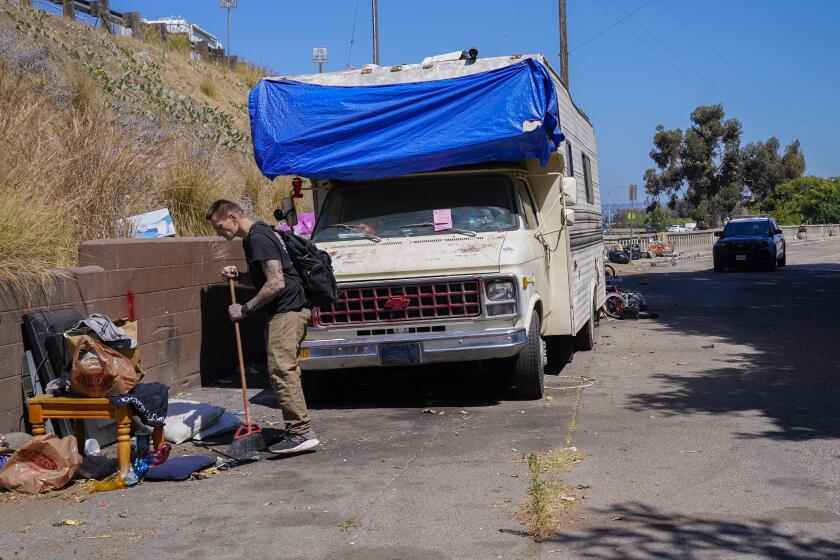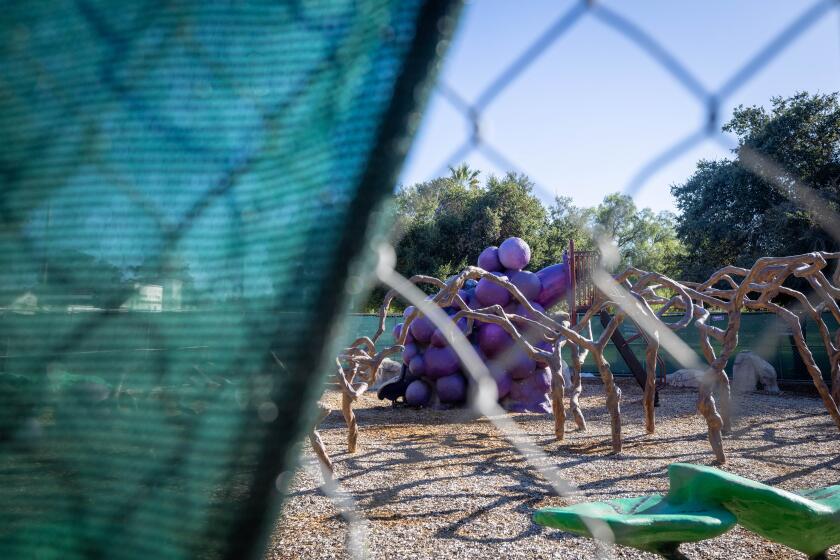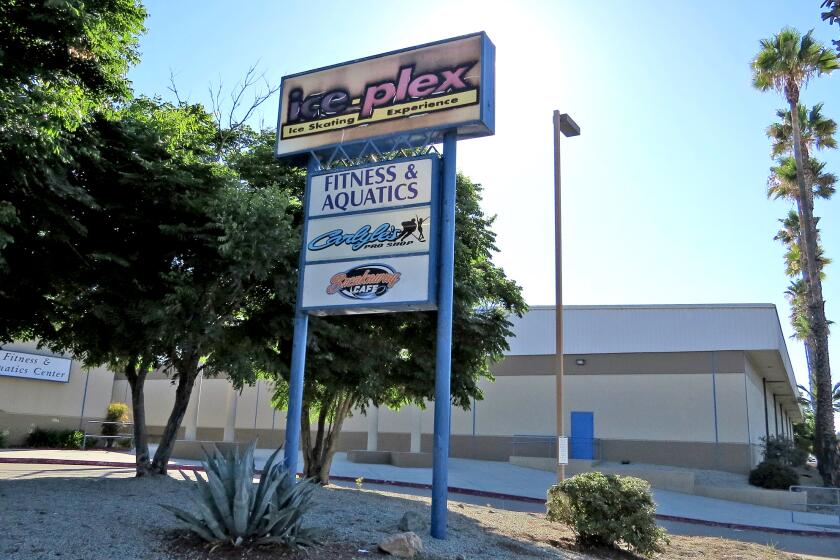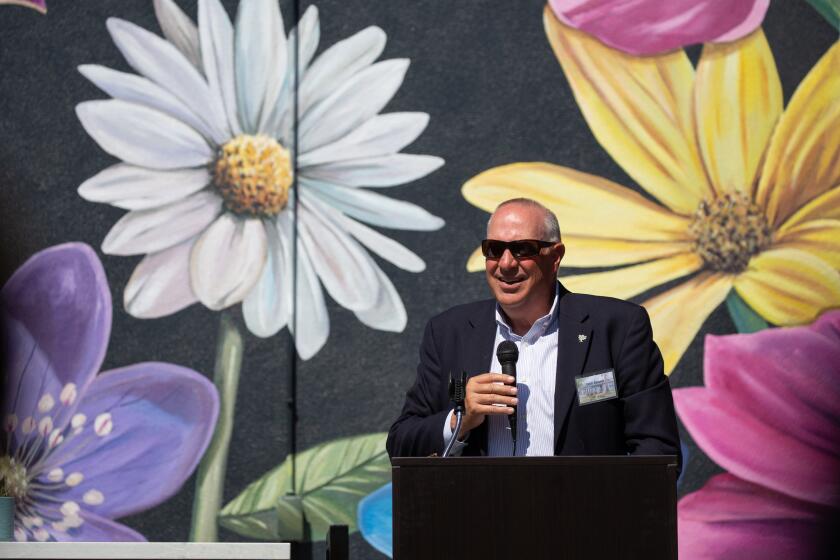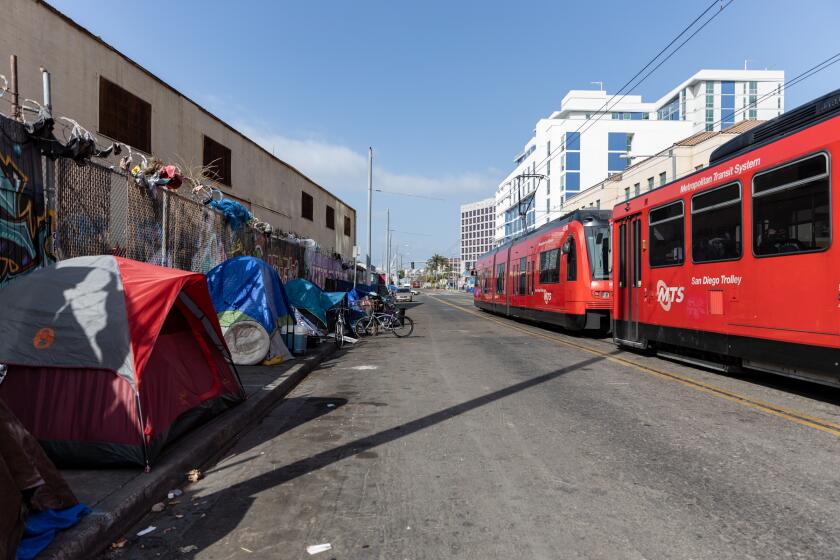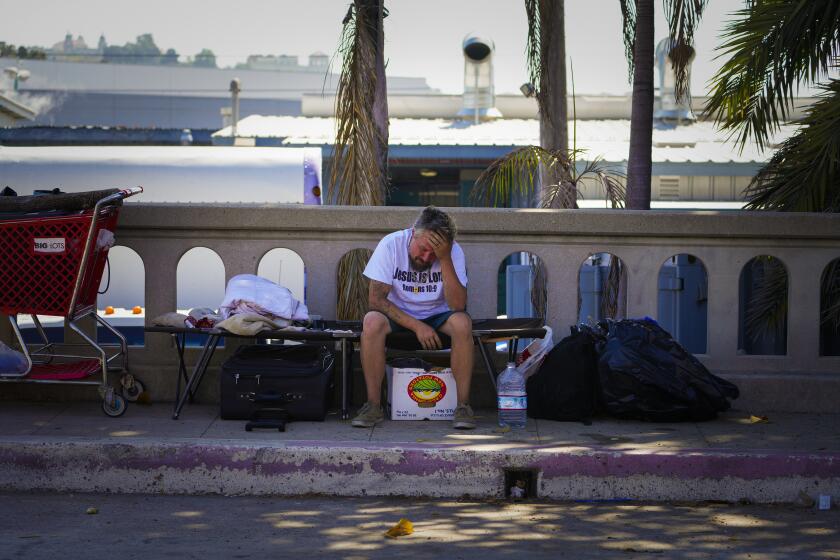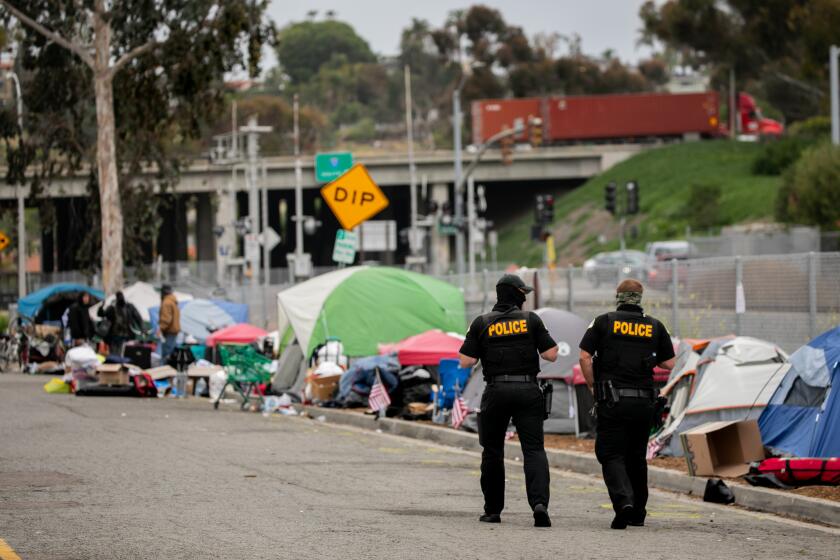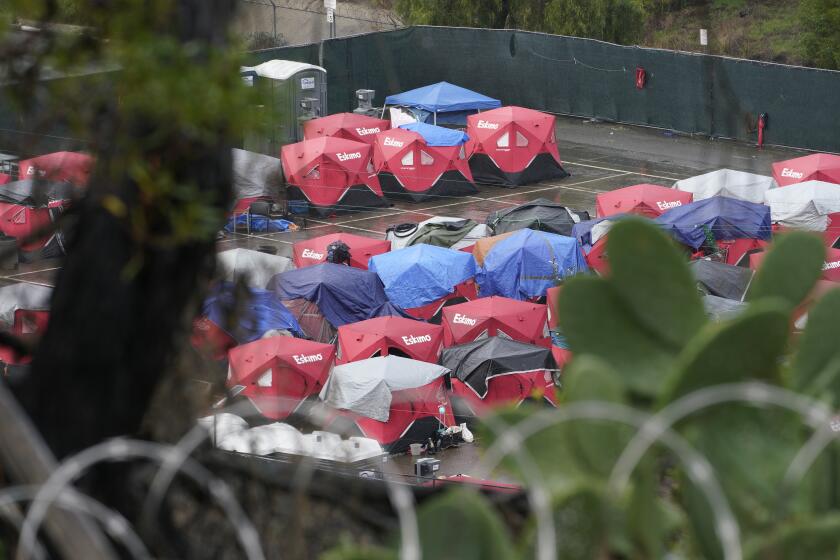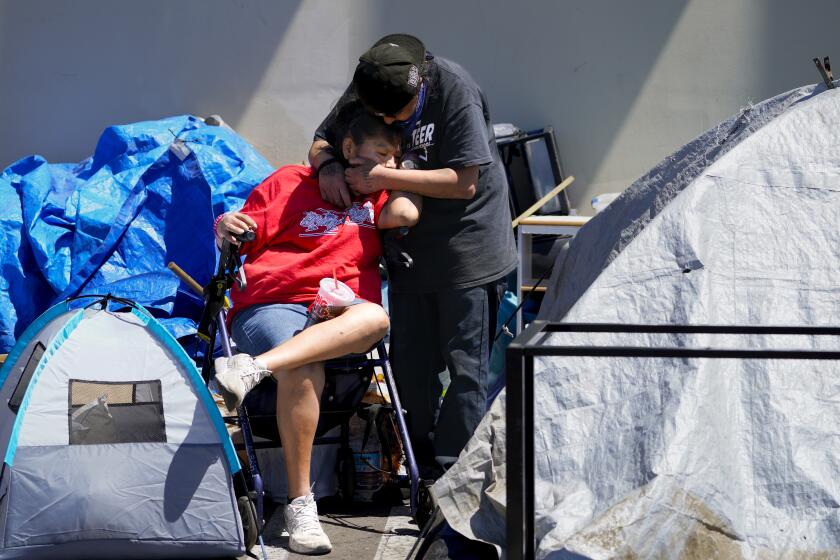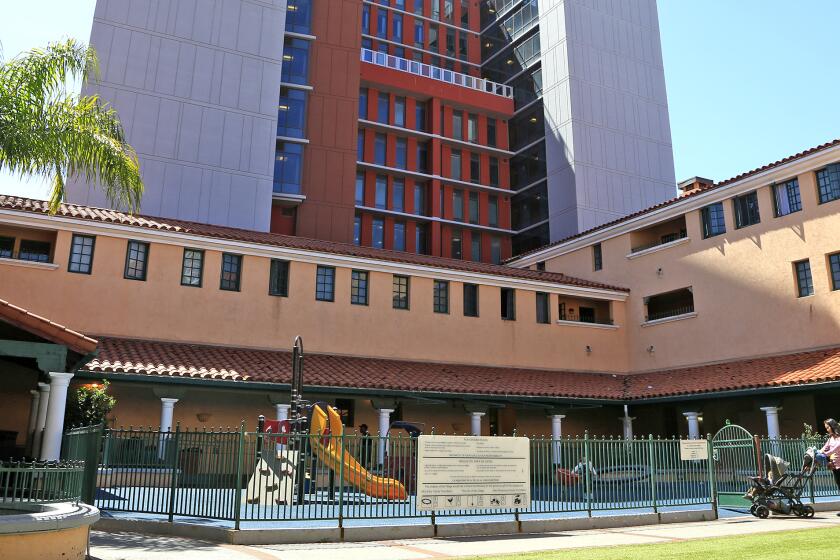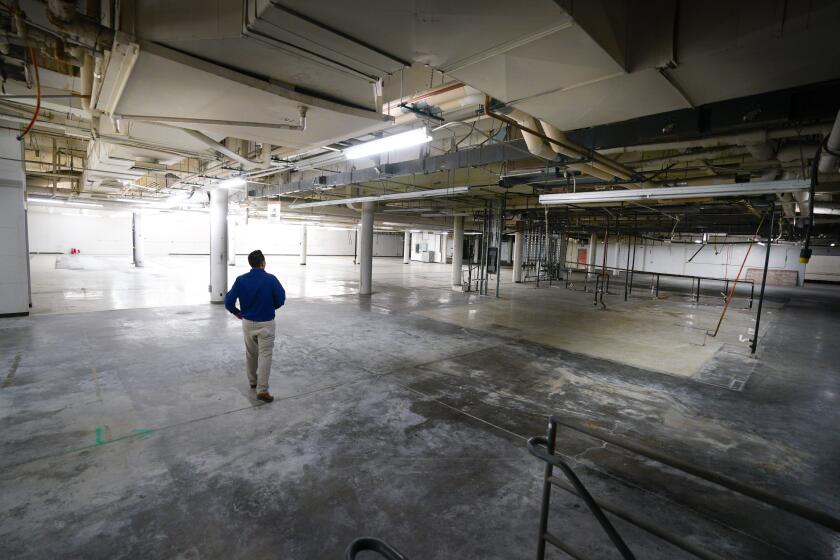Money for permanent homeless housing diverted to tents
Housing homeless people in large industrial tents will cost more than originally projected and will divert $6.5 million from permanent housing projects, according to a report from the San Diego Housing Commission.
The commission will hold a special meeting next Friday to consider allocating the funds to pay the agencies that will operate the three tents, which are expected to cost about $43 a person daily and shelter 700 people.
A group that proposed the tents earlier this year had projected the cost at $17 a day per person for basic services to between 250 and 5,000 people. That estimate did not include various services that the agencies operating the shelter will need to provide.
While the commission will have to divert money earmarked for housing projects intended to help homeless people stay off the street permanently, officials say the funding shift may not be too disruptive.
San Diego Mayor Kevin Faulconer’s Press Secretary Greg Block said the city is working with the commission to fund housing projects already in the pipeline. The money will come from what once was the city’s redevelopment fund.
Housing Commission President and CEO Rick Gentry confirmed that diverting the money should not affect plans to build more housing.
“With a timely replenishment of funds from other sources, there should be no impact to permanent supportive housing projects,” he wrote in an e-mail.
Chain restaurant operator Dan Shea and San Diego Padres Managing Partner Peter Seidler were the driving force in proposing the city use large industrial tents to house homeless people on the streets.
In June, they presented a proposal that found the tents could operate for a daily cost of about $17 a person.
“We stand behind $17,” Shea said Friday about the report.
But Shea was quick to note that in June he said the proposal was for basic services only, and did not include health and other social services.
Bob McElroy, president and CEO of the Alpha Project, which will operate one of the tents, said the shelter will have to provide more than just basic services under requirements by the Housing Commission.
As a bridge housing facility, meaning it is more than a shelter but also a facility that provides services that could lead to permanent housing, Alpha Project must provide health care, housing navigators and other social services for people staying in the tent, he said.
Seider said it’s important to keep in mind that the cost of getting people off the street will be offset by the cost of doing nothing for them, which may be even greater.
“When you take the chronically homeless person off the street and take care of that person, it saves you all sorts of money that would be spent on the police department, emergency rooms, hospital and ambulances,” he said. “There’s a strong economic argument to get the most vulnerable people off the streets, and that’s part of what these industrial tents do for us.”
It’s also worth the cost because it’s the right thing to do, he said.
“From my perspective, from a compassionate perspective, we’re saving lives and helping people,” he said.
The Alpha Project and Veterans Village of San Diego had operated large tent shelters until the city closed them about two years ago in a move to focus on permanent housing for the homeless.
The number of people on the street continued to grow, however, as new permanent housing could not keep pace with the reduction of transitional housing units and the loss of low-income rentals.
A count of unsheltered homeless people this year found 1,300 people on the streets of downtown San Diego, a 27 percent increase from last year.
The sight of so many people in tents, under tarps and huddled in storefronts, along with a deadly hepatitis A outbreak that disproportionately affected the homeless, led the city to return the tents.
The proposed $6.5 million cost of operating the tents for seven months beginning Dec. 1 includes $2.8 million to the Alpha Project, $1.3 million to Father Joe’s Villages, $1.9 million to Veterans Village of San Diego and $413,000 to the San Diego Housing Commission.
The Alpha Project and Father Joe’s Villages will operate tents in the outskirts of downtown and Veterans Village will operate a tent in the Midway District.
The $6.5 million contract will cover seven months, and last through June 30, the end of the city’s fiscal year.
While Dec. 1 is the projected opening date, McElroy said the Alpha Project tent at 16th Street and Newton Avenue already is under construction and he hopes it will be open before Thanksgiving.
The Alpha Project tent will have 350 beds for adult men and women, Father Joe’s Villages tent will have 150 beds for families and the Veterans Village tent will have 200 bed for single adult men and women veterans.
Gentry said the city’s homelessness action plan has budgeted $50 million over three years to create at least 500 permanent supportive housing units. That includes $30 million to be awarded by the commission to developers to create at least 300 units and $20 million to be invested by the commission to acquire property to create at least 200 units.
Homeless Playlist


San Diego hepatitis outbreak continues to grow: 481 cases
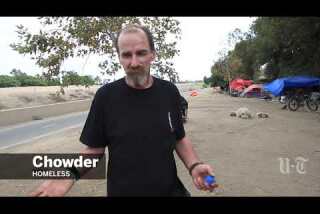
Homeless entrenched in booming tent city along Santa Ana River

San Diego mayor agreed to homeless hub, then delayed, advocates say

Homeless outreach in San Diego
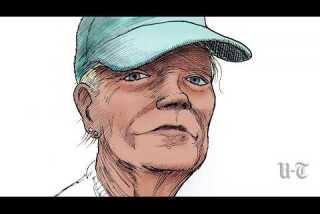
Video: Street Art: Portraits of San Diego's Homeless #8

Street Art: Portraits of San Diego's Homeless #7
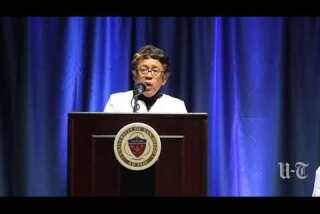
Pitching a tent plan for San Diego's homeless

Homeless efforts get $80M boost for various services
760-529-4939
Get Essential San Diego, weekday mornings
Get top headlines from the Union-Tribune in your inbox weekday mornings, including top news, local, sports, business, entertainment and opinion.
You may occasionally receive promotional content from the San Diego Union-Tribune.

